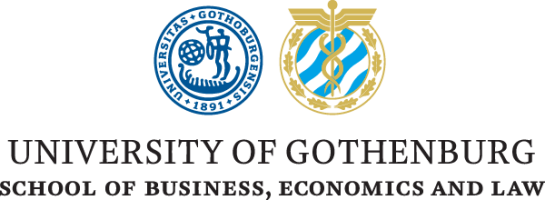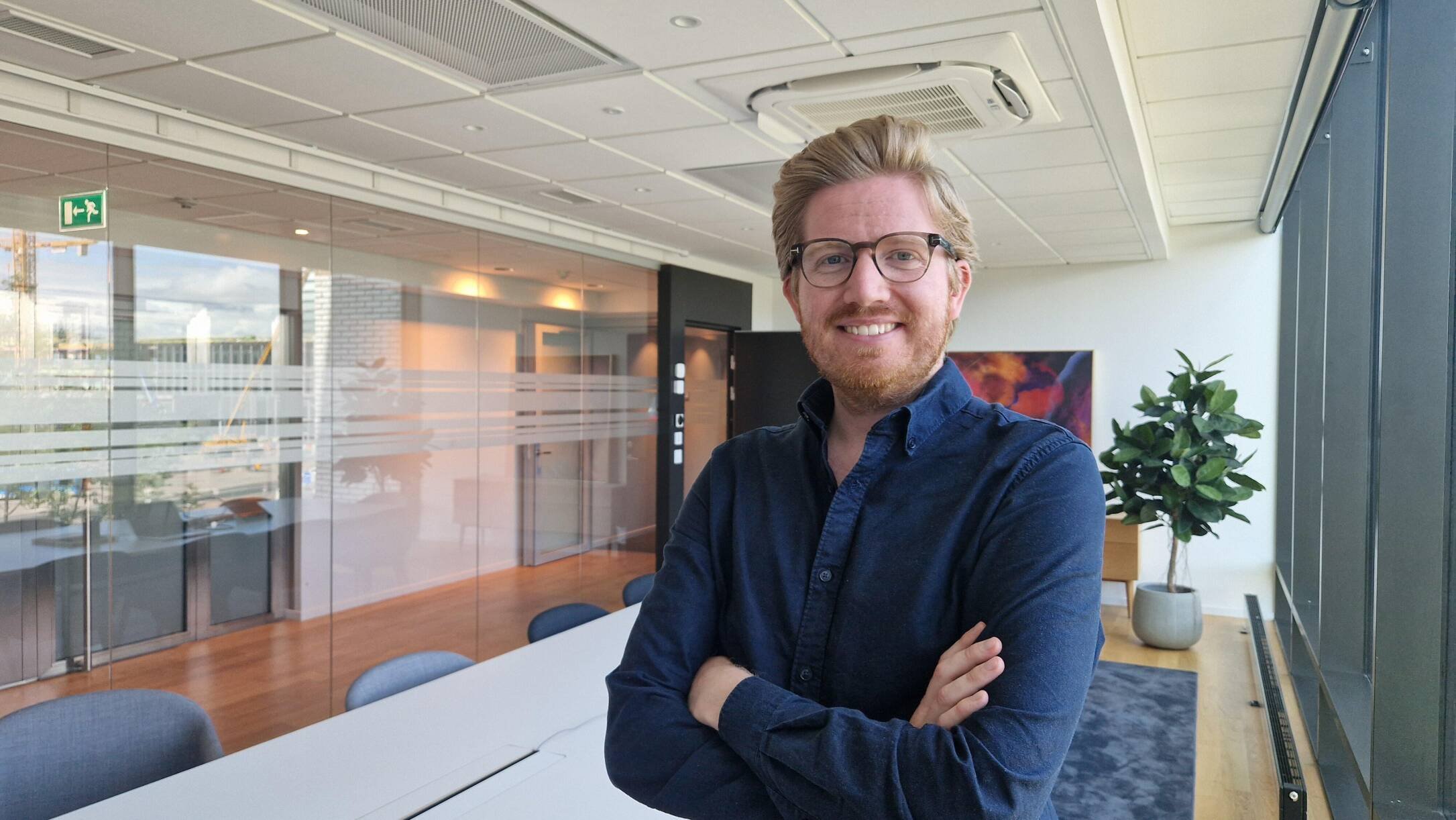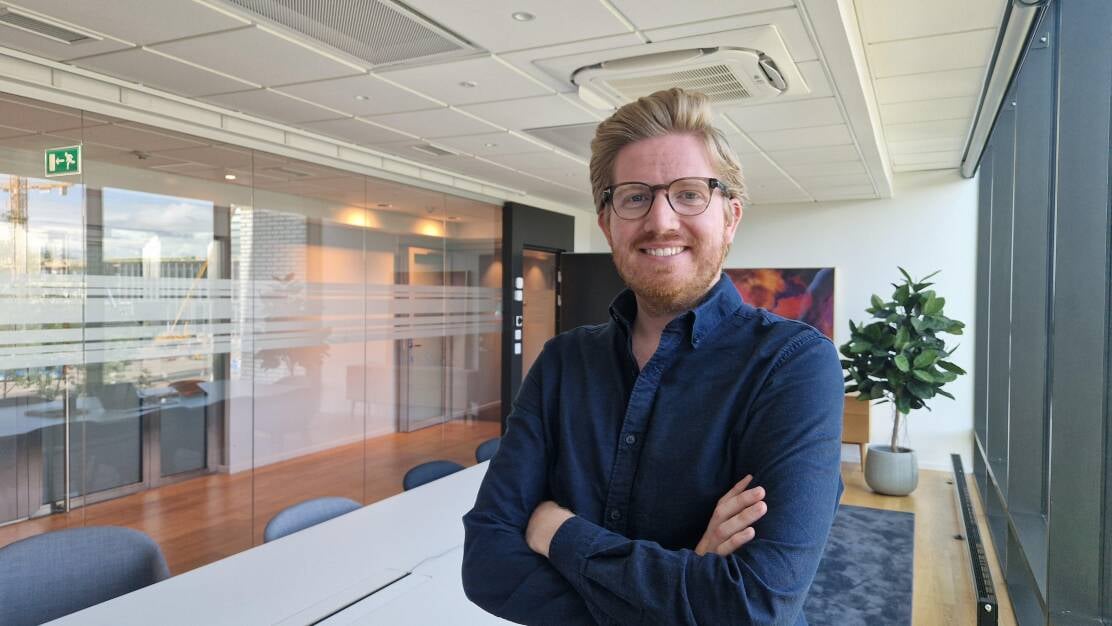
Future goals and advice for prospective students
Sebastian's future plans are clear: he wants to continue working in finance, where he can use large amounts of data to analyse and forecast financial ratios. “Working with analytics is something I am passionate about”, he says. His advice to students considering applying to the School is to think early on about how their course choices and additional work experience will affect their future career opportunities. “Having good grades can be important, but creating a network can be crucial to getting a job. Get involved in student organisations and attend events — it can open many doors”, he advises.
The programme's skills that make a difference
Sebastian developed skills during his Master's programme in Finance that he uses daily in his work. “Analytical skills and the ability to handle large amounts of data are crucial in my role,” he says. The programme also strengthened his communication skills, enabling him to present complex financial insights clearly.
His practical skills in statistics and data modelling have also been particularly valuable. “Courses where I got to work with Excel, Power BI, Python and Matlab gave me the tools I need to analyse data and make decisions effectively”, he explains.
The choice of programme and the strengths of the School
Studying business and economics felt natural to Sebastian, as he has always been interested in how companies and markets work. “The bachelor's programme provided me with a broad understanding of business and economics, while the master's programme in finance enabled me to specialise in analysis and investments”, he says. He particularly enjoyed the statistics, data modelling and forecasting courses. “It feels like you have learnt something practical that can be applied directly in working life,” he says. He also emphasises the School's close connection to the business community as a major advantage. 'Initiatives such as the Gothenburg Investment Banking Society (GIBS), Handels Consulting and Gadden provided valuable opportunities to network with companies while we were still studying”, he says.
First steps into the industry
Sebastian found his current position on LinkedIn and spent a lot of time preparing for interviews. “I read through the company's annual report to demonstrate my genuine interest in finance and the company,” he says. He got his first job in finance at Nordea through a friend on his Master's programme. “It can be super important to try to build a network of contacts right from the start, so try to participate in as many student events as possible. Try to participate in as many student events as possible. It also helps a lot when you're studying — it's much easier to get through tough times with friends," he says.
His working life involves portfolio analysis and strategic decision-making
Currently, Sebastian works as a portfolio analyst at Alektum Group, where he primarily analyses portfolios of non-performing loans (NPLs). These portfolios include retail invoices, credit card debt, and consumer loans. “My job involves creating cash flow forecasts and recommending pricing strategies based on statistical analysis”, he explains. A large part of his work also involves business development and customer relations. “I am involved in contract negotiations and develop strategies to optimise our investments,” he says. He also runs several internal projects to improve investment monitoring and the presentation of portfolios to the board and investment committees.
He studied for a Bachelor's degree in Business and Economics and a Master's degree in Finance at the School of Business, Economics and Law. Although he has lived in Gothenburg for most of his life, he spent a few years growing up in the US, which significantly improved his English. “It's been incredibly useful, especially in my studies and working life”, he says.






Visiting address
Universitetsplatsen 1
Org. nummer: 202100-3153
Our channels
Contact
The University of Gothenburg
Box 100
405 30 Gothenburg
Sweden
Main Switchboard
+46 31-786 00 00

studied MSc Finance
Sebastian Alm
Interview with Sebastian Alm
“It feels like you have learnt something practical that can be applied directly in working life.”







Future goals and advice for prospective students
Sebastian's future plans are clear: he wants to continue working in finance, where he can use large amounts of data to analyse and forecast financial ratios. “Working with analytics is something I am passionate about”, he says. His advice to students considering applying to the School is to think early on about how their course choices and additional work experience will affect their future career opportunities. “Having good grades can be important, but creating a network can be crucial to getting a job. Get involved in student organisations and attend events — it can open many doors”, he advises.



studied MSc Finance
Sebastian Alm
“It feels like you have learnt something practical that can be applied directly in working life.”
Interview with Sebastian Alm
His working life involves portfolio analysis and strategic decision-making
Currently, Sebastian works as a portfolio analyst at Alektum Group, where he primarily analyses portfolios of non-performing loans (NPLs). These portfolios include retail invoices, credit card debt, and consumer loans. “My job involves creating cash flow forecasts and recommending pricing strategies based on statistical analysis”, he explains. A large part of his work also involves business development and customer relations. “I am involved in contract negotiations and develop strategies to optimise our investments,” he says. He also runs several internal projects to improve investment monitoring and the presentation of portfolios to the board and investment committees.
He studied for a Bachelor's degree in Business and Economics and a Master's degree in Finance at the School of Business, Economics and Law. Although he has lived in Gothenburg for most of his life, he spent a few years growing up in the US, which significantly improved his English. “It's been incredibly useful, especially in my studies and working life”, he says.
First steps into the industry
Sebastian found his current position on LinkedIn and spent a lot of time preparing for interviews. “I read through the company's annual report to demonstrate my genuine interest in finance and the company,” he says. He got his first job in finance at Nordea through a friend on his Master's programme. “It can be super important to try to build a network of contacts right from the start, so try to participate in as many student events as possible. Try to participate in as many student events as possible. It also helps a lot when you're studying — it's much easier to get through tough times with friends," he says.
The choice of programme and the strengths of the School
Studying business and economics felt natural to Sebastian, as he has always been interested in how companies and markets work. “The bachelor's programme provided me with a broad understanding of business and economics, while the master's programme in finance enabled me to specialise in analysis and investments”, he says. He particularly enjoyed the statistics, data modelling and forecasting courses. “It feels like you have learnt something practical that can be applied directly in working life,” he says. He also emphasises the School's close connection to the business community as a major advantage. 'Initiatives such as the Gothenburg Investment Banking Society (GIBS), Handels Consulting and Gadden provided valuable opportunities to network with companies while we were still studying”, he says.
The programme's skills that make a difference
Sebastian developed skills during his Master's programme in Finance that he uses daily in his work. “Analytical skills and the ability to handle large amounts of data are crucial in my role,” he says. The programme also strengthened his communication skills, enabling him to present complex financial insights clearly.
His practical skills in statistics and data modelling have also been particularly valuable. “Courses where I got to work with Excel, Power BI, Python and Matlab gave me the tools I need to analyse data and make decisions effectively”, he explains.